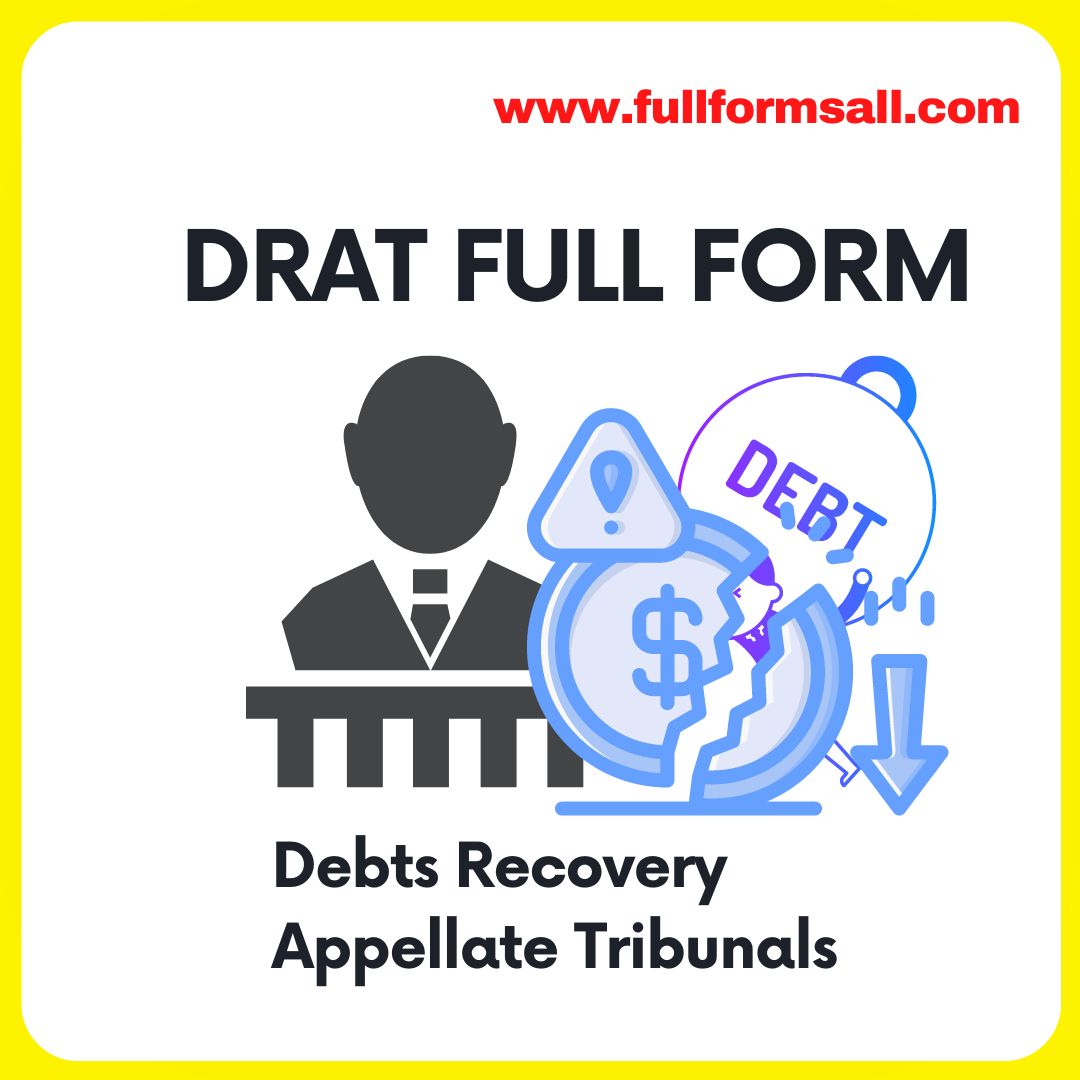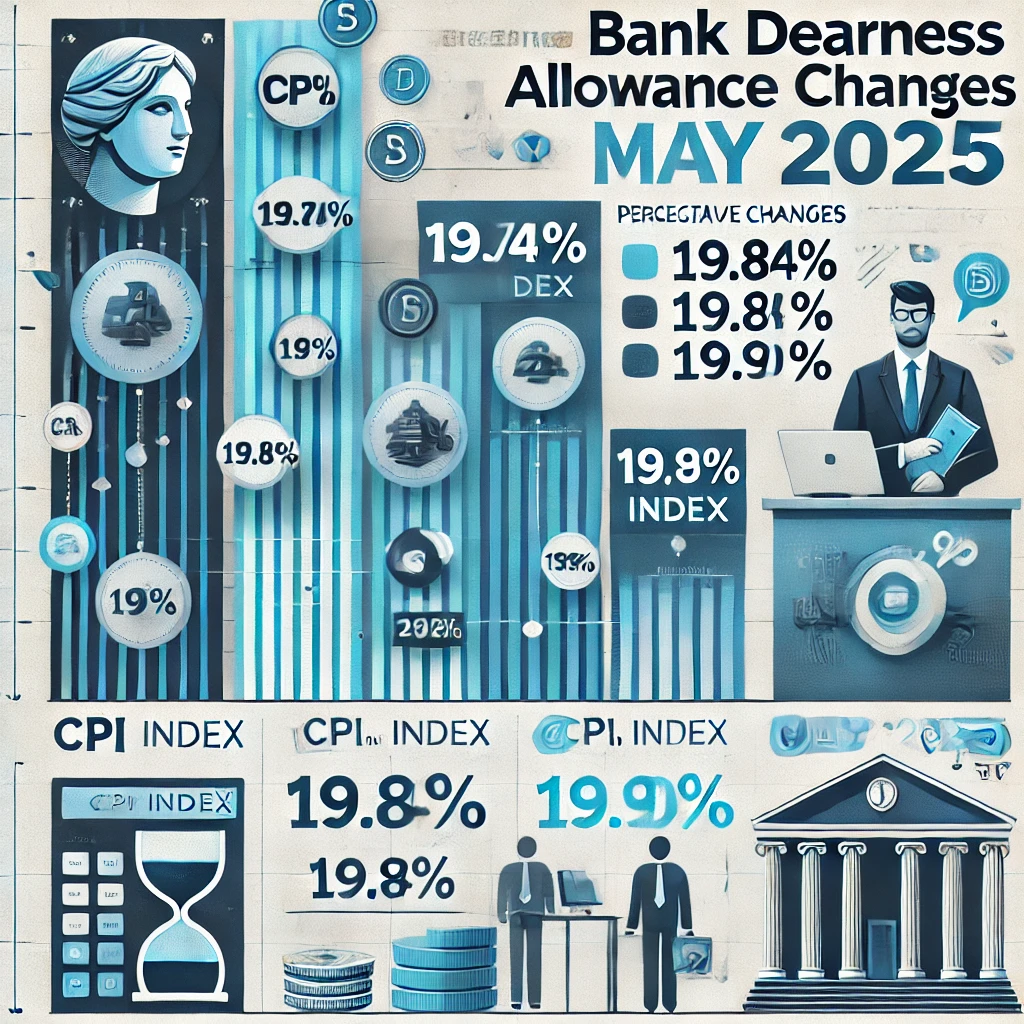In this article you get to know about DRAT full from and other different abbreviations of DRAT in various fields. DRAT full form refers to Debts Recovery Appellate Tribunals.

Debt Recovery Appellate Tribunals are quasi-judicial bodies in India that have been established to hear appeals against the orders of Debt Recovery Tribunals. The primary function of DRATs is to provide an effective and expeditious mechanism for the recovery of debts due to banks and financial institutions. DRATs were established under the Recovery of Debts Due to Banks and Financial Institutions Act, 1993 (RDBA Act). They are located in various cities across India and are headed by a presiding officer who is typically a retired judge of a High Court.
DRATs have the power to hear appeals against the orders passed by DRTs under the RDBA Act. These appeals may be filed by banks, financial institutions, or borrowers who are aggrieved by the order of the DRT. DRATs have the power to confirm, modify or reverse the orders of the DRT.
The procedure followed by DRATs is similar to that of a civil court. The parties are required to file written submissions and evidence, and the DRAT may also hold oral hearings. The decision of the DRAT is final and binding, subject to any appeal to the High Court.
Composition: A DRAT is typically composed of a presiding officer who is a retired judge of a High Court, and two other members who are typically officers of the rank of Joint Secretary or above in the Ministry of Finance or the Reserve Bank of India.
Jurisdiction: DRATs have jurisdiction to hear appeals against the orders of DRTs relating to the recovery of debts due to banks and financial institutions. The threshold limit for filing an appeal before a DRAT is Rs. 20 lakhs.
Powers: DRATs have the power to summon and enforce the attendance of witnesses, examine them on oath, receive evidence, and issue orders for the production of documents.
Time limit: DRATs are required to dispose of appeals within 6 months from the date of filing, although this time limit may be extended for a maximum of another 6 months.
Appeal: The decision of a DRAT may be appealed before the High Court within 45 days from the date of the decision.
Cost: There is a fee for filing an appeal before a DRAT, which is typically a percentage of the amount of debt in question. However, in cases where the appellant is a borrower who is a small-scale industry, the fee may be waived or reduced.
Location: DRATs are located in various cities across India, including Mumbai, Delhi, Kolkata, Chennai, and Hyderabad.
Priority: DRATs give priority to cases involving senior citizens, women, and other vulnerable groups.
Review: DRATs have the power to review their own orders, and also the power to transfer cases from one DRT to another.
Expertise: The members of DRATs are expected to have expertise in matters related to banking, finance, and law.
Interim orders: DRATs have the power to pass interim orders to ensure that the interests of both parties are protected during the pendency of an appeal.
Settlement: DRATs encourage settlement between the parties and may even refer the matter to mediation or conciliation.
Limitation period: Appeals before DRATs must be filed within 30 days from the date of the order of the DRT. However, this period may be extended in certain circumstances.
Legal representation: Parties before DRATs are generally represented by lawyers, and DRATs may also appoint advocates to assist them in the proceedings.
DRATs are an important mechanism for the recovery of debts due to banks and financial institutions. They provide an effective and efficient forum for hearing appeals against the orders of DRTs, thereby helping to ensure that the recovery of debts is carried out in a timely and effective manner. DRATs are specialized tribunals with a focus on the recovery of debts due to banks and financial institutions. They have the power to hear appeals against the orders of DRTs, and provide a forum for the speedy and efficient resolution of disputes. The procedures followed by DRATs are similar to those of a civil court, and the decisions of DRATs are subject to appeal before the High Court.
Different abbreviations of DRAT in various fields are as follows
| Term | Abbreviation | Category |
| DRAT | Debts Recovery Appellate Tribunal | Banking |
| DRAT | Data Requirements Analysis Tool | Computing |
| DRAT | De Riego Arenal Tempisque | Computing |
| DRAT | Data Retrieval From Archived Tape | Computing |
| DRAT | Division Of Research And Applied Technology | Academic & Science |
| DRAT | District Rifle Association Thrissur | General |
CONCLUSION:
Dear reader in this article you get to know about DRAT full from and DRAT term used in various other fields, If you have any query regarding this article kindly comment below.


